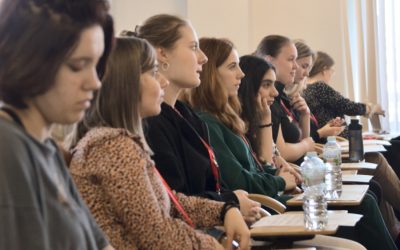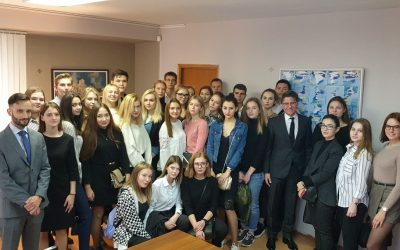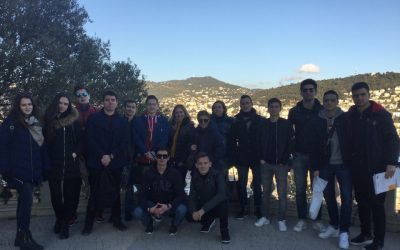Description
The content of the major 12.00.11 “Judicial activity, prosecutorial activity, human rights and law enforcement activities” is the study of scientific, legal, organizational, structural, methodological foundations of the activities of the judiciary and the prosecutor’s office, executive authorities in the field of law enforcement and human rights activities, as well as law enforcement and human rights institutions of civil society – i.e. activities aimed at ensuring the direct action of human and civil rights and freedoms, the rule and direct action of the Constitution and the law, unity and strengthening the rule of law, the legitimate interests of society and the individual.
Areas of research
1. Judicial activity
1.1. Judicial activity, its concept and significance in the system of other types of legal activity, as well as essential distinctive features.
1.2. History of the judicial systems. Genesis and historical development of legal proceedings and its types.
1.3. Social and legal purpose of justice in a modern legal state; ensuring by justice the direct action of human and civil rights and freedoms in accordance with constitutional and international legal standards.
1.4. The court as a state body, separately and independently exercising judicial power.
1.5. The powers of the judiciary, their content, and limits in the constitutional system of separation of powers.
1.6. Administration of justice as the exclusive authority of the judiciary, the concept and basic features of justice; principles of justice; legal force of acts of justice and ensuring their execution by the coercive force of the state.
1.7. Judicial control over the content of normative regulation as an essential power of the judiciary, exercised in all types of jurisdiction; judicial interpretation of applicable law.
1.8. Concept, content, and principles of judicial review in constitutional justice; the legal force of acts of constitutional justice in relation to the law enforcement acts of other judicial authorities; interaction of courts in the implementation of constitutional judicial review.
1.9. Other powers of the judiciary, their goals, content, limits, conditionality by the tasks of ensuring the independent and full administration of justice.
1.10. The concept and types of legal proceedings, their development and connection with the development of the judicial system; forms of specialization in judicial activity; the significance and prospects of out-of-court and pre-trial settlement of legal disputes in relation to certain types of legal proceedings.
1.11. Constitutional and legislative regulation of the judicial system of the Russian Federation, its concept, main features and structure. The Constitutional Court of the Russian Federation, the Supreme Court of the Russian Federation, Federal courts, and courts of constituent entities of the Russian Federation, courts of general jurisdiction and arbitration courts, ways to improve their organization and functioning. Correlation and interaction of national and supranational jurisdictions.
1.12. The status of judges is its legal and ethical foundations. The status of jurors and assessors. Participation in the administration of justice as a constitutional right and duty of a citizen; the importance of citizen participation in justice as one of its constitutional guarantees.
1.13. Legal and social guarantees for the independence of judges, their irreplaceability and inviolability; types and social conditioning of the judge’s immunities; procedures for bringing a judge to criminal, administrative and disciplinary liability; mechanisms to ensure the independent status of judges, as well as separate and independent implementation of the activities of the courts.
1.14. Formation of the judiciary. Development of models of professional training, selection and replenishment of the judiciary: socio-legal and comparative aspects.
1.15. Legal, organizational, resource and other conditions for the functioning of the judiciary. Organizational support of the courts.
1.16. The judicial community and its bodies, their role in improving judicial activity and protecting the status of judges.
1.17. Implementation of supervision of judicial activity in the procedural forms provided for by the law and other mechanisms for the formation of judicial practice.
2. Prosecutorial activity
2.1. Prosecutorial supervision, its concept, tasks and correlation with other law enforcement functions.
2.2. The history of the emergence and development of the prosecutor’s office.
2.3. Legislation on prosecutorial supervision, its history and development prospects.
2.4. The prosecutor’s office in the legislation and legal practice of foreign states.
2.5. The main tasks and directions of prosecutorial supervision.
2.6. The system of the prosecutor’s office of the Russian Federation and the structure of its bodies, the principles of the organization and activities of the prosecutor’s office of the Russian Federation, the interaction of the prosecutor’s office with other law enforcement agencies
2.7. Powers of prosecutors in exercising supervision over the observance of the Constitution and laws in force on the territory of the Russian Federation, the subject, and limits of this direction of prosecutorial supervision.
2.8. Prosecutorial supervision over the implementation of laws in the activities of state control (supervision) bodies, municipal control bodies.
2.9. Prosecutor’s supervision over the legality of the procedural activities of the bodies of inquiry and the bodies of preliminary investigation, over the execution of laws by the bodies carrying out operational-investigative activities.
2.10. Prosecutorial supervision over the execution of laws by administrations of bodies and institutions executing punishment and measures of a coercive nature imposed by the court, as well as by administrations of places of detention of arrested persons and persons in custody.
2.11. Prosecutorial supervision over the implementation of laws by bodies and officials in the field of administrative jurisdiction.
2.12. Tasks and powers of the prosecutor’s office in the field of criminal prosecution of persons who have committed crimes.
2.13. The tasks of the prosecutor’s office aimed to coordinate the fight of law enforcement agencies against crime.
2.14. Participation of prosecutors in the consideration of criminal, civil and arbitration cases by courts.
2.15. Legal educational (legal explanatory) activities of the prosecutor’s office.
2.16. The powers of the prosecutor’s office in organizing international cooperation in the field of combating crime.
2.17. Interaction of prosecutors with state and public control mechanisms in the system of measures to ensure the rule of law.
2.18. Service in the prosecutor’s office as a type of public service and the legal status of its employees.
3. Human rights and law enforcement activities
3.1. The concept of human rights activity, its place among other types of legal activity: judicial, prosecutorial and law enforcement activities; the system of organizations and institutions carrying out human rights activities, their relationship with government agencies.
3.2. The concept of law enforcement in the system of other types of legal activities. Public authorities carrying out law enforcement activities. The role of public councils in the activities of law enforcement agencies.
3.3. Goals, objectives, principles and differences of human rights and law enforcement activities in connection with ensuring private and public interests.
3.4. Historical, national and foreign experience of organizing human rights and law enforcement activities.
3.5. Human rights aspects in the activities of state institutions of power. Human rights aspects in the activities of courts. Human rights aspects in the activities of the Constitutional Court of the Russian Federation. Human rights activities of the prosecutor’s office. Human rights activities of law enforcement agencies.
3.6. International human rights organizations: legal basis for activities, goals, objectives.
3.7. The bar, the concept, goals and objectives of the bar, the role in ensuring the constitutional right of everyone to qualified legal assistance and in the implementation of other rights of individuals and legal entities.
3.8. The main functions of the bar and types of legal assistance provided by lawyers; regulation and organization of the activities of the bar to provide legal aid, subsidized by the state.
3.9. Legal basis and principles of organization and activity of the bar. The procedure for the formation of bar chambers, the organization of self-government bodies. The relationship of the bar with state bodies, with human rights and other public organizations.
3.10. Organizational forms of lawyers’ activity: their development, social conditioning, and distinctive features.
3.11. The status of a lawyer: its main characteristics, procedure for acquisition, suspension and termination. Requirements for a lawyer. Professional rights and obligations of a lawyer. Constitutional and procedural guarantees for the activities of a lawyer in the implementation of legal proceedings on the basis of competition and equality of the parties.
3.12. Qualification commissions of chambers of lawyers, their composition, functions, and order of activity.
3.13. Legal ethics. Code of Professional Ethics for a Lawyer. Grounds and procedures for disciplinary liability of a lawyer.
3.14. International relations of the Russian legal profession.
3.15. Historical and foreign experience of legal organization and activities of the legal profession.
3.16. Commissioner for Human Rights in the Russian Federation as an institution of parliamentary control over the protection of rights and freedoms. Development of the institution of the ombudsman in Russia and foreign countries.
3.17. Legal status of the Commissioner for Human Rights in the Russian Federation. Functions, main directions and procedure for the activities of the Commissioner for Human Rights in the Russian Federation.
3.18. Interaction of the Commissioner for Human Rights in the Russian Federation with the court and law enforcement agencies of the state. Features of his procedural status in legal proceedings.
3.19. Non-governmental human rights organizations. Their common right characteristics, forms of activity, relationship with the institution of the bar.
3.20. Forms of rendering legal assistance by free practitioners (auditors, mediators).
3.21. Notaries, the concept, goals and objectives of notaries and notarial activities, its role in ensuring the rights of individuals and legal entities.
3.22. The main functions of notaries, types and forms of notarial actions.
3.23. Legal foundations and principles of the organization and activities of a private notary, the organization of self-government bodies (notary chambers), the relationship of the notary with state bodies.
3.24. Notary status, peculiarities of obtaining it, professional rights and obligations of a notary, notarial ethics.
3.25. Historical and foreign experience of the organization and activities of the notary.
3.26. Organization and legal basis for the functioning of services, bodies and subdivisions of the system of the Ministry of Internal Affairs of the Russian Federation, directly performing law enforcement functions and ensuring their implementation.
3.27. The police and their role in the detection, prevention, suppression and investigation of crimes, the fight against other offenses.
3.28. Organization and legal basis for the functioning of subdivisions performing law enforcement functions in the system of other executive authorities.
3.29. Organization of preliminary investigation, inquiry and operational-investigative activity, its legal basis and principles.
3.30. Service in law enforcement agencies and professional ethics of their employees.
Competences and advantages
The solution of research problems is carried out on the basis of general methodological approaches in accordance with modern trends and patterns of development of the Russian Federation as a democratic legal state.








